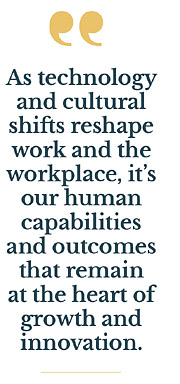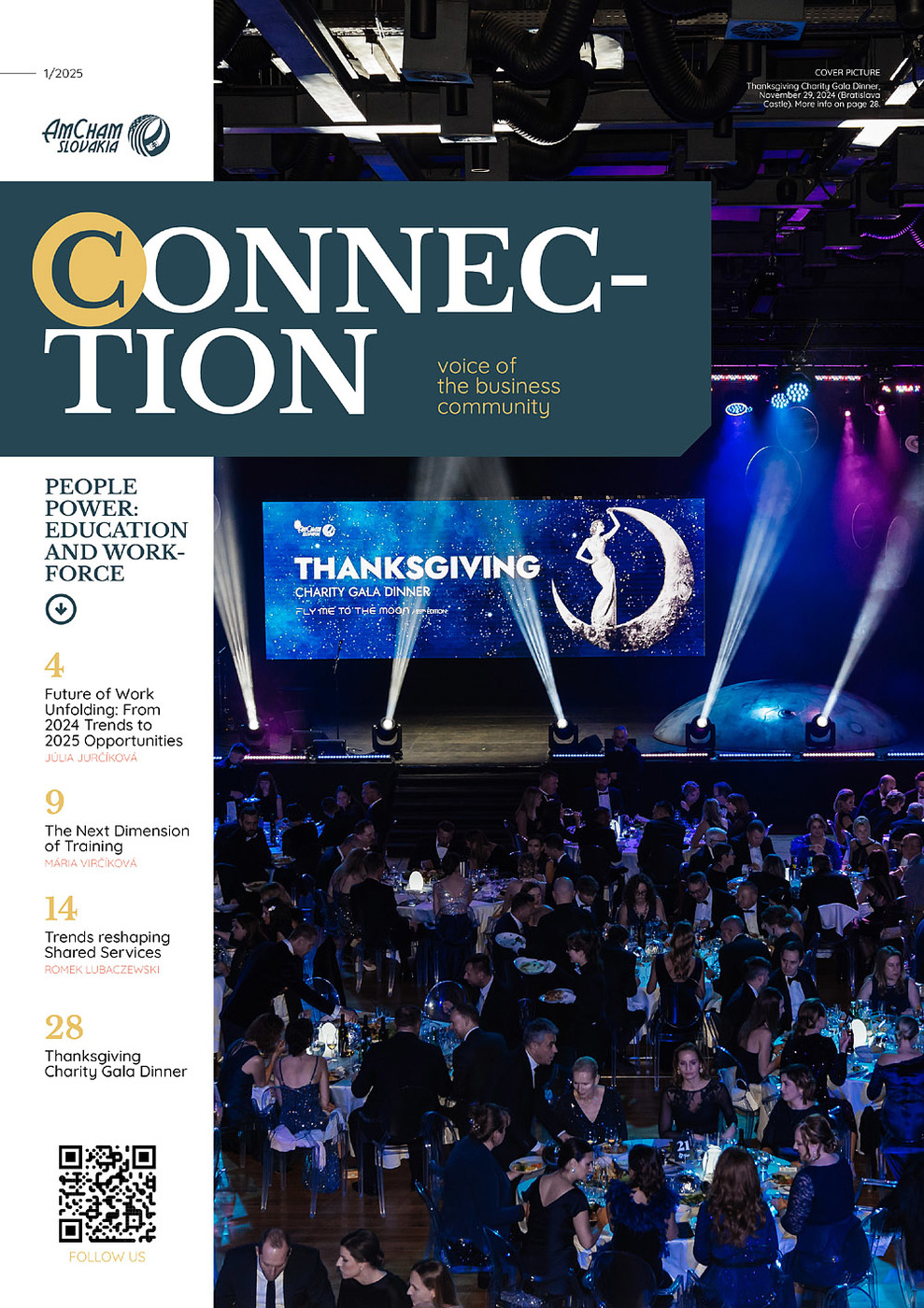One of the most significant trends is the shift towards human performance in a boundaryless world. As traditional boundaries between work and personal life blur, organizations are focusing on creating environments where employees can thrive holistically. This involves moving beyond conventional productivity metrics to measuring overall human performance. By prioritizing well-being, creativity, and personal growth, companies can foster a more engaged and productive workforce. Many organizations in our region are still in the data cleaning or exploratory stage, while some of the pioneers are already able to use the advantages of the data and insights to make data-driven decisions.
On the other hand, leaders now have access to an extensive array of workforce data, which can be incredibly valuable, but also potentially risky. For employees, it’s vital to know what data is being collected, the reasons for its collection, and who can access it. This transparency is essential for building trust.
Another forward-looking trend is the rise of generative AI and its impact on work. Generative AI is transforming how tasks are performed, enabling more creative and efficient workflows. AI advancements are exposing organizations’ inability to imagine new possibilities for human-technology collaboration. To close this imagination deficit, organizations need to make developing enduring human capabilities like curiosity, empathy, and creativity a strategic priority, to help workers and organizations co-create an imaginative future of work.

In recent years, the advent of virtual reality (VR) technology has transformed various aspects of business operations, and human capital management is no exception. According to the report, VR is becoming a pivotal tool in enhancing the employee experience, driving engagement, and improving training and development processes within organizations. There are several key areas where VR is making a significant impact. Firstly, VR is revolutionizing training and skill development. Traditional training methods often struggle to simulate real-world scenarios accurately. VR creates immersive environments where employees can practice and hone their skills without real-world risks. This is particularly beneficial for high-stakes industries, such as healthcare, manufacturing, and aviation, where VR can replicate complex procedures and scenarios with high fidelity. Furthermore, virtual reality is enhancing recruitment and onboarding, and fostering collaboration and inclusivity. As the technology evolves and becomes more accessible, it is likely that VR will play an increasingly central role in shaping the future of work. By leveraging virtual reality, organizations can create more engaging, efficient, and inclusive work environments, ultimately driving better business outcomes and a more empowered workforce.
The concept of microcultures is also gaining traction. Instead of striving for a single, unified corporate culture, organizations recognize the value of fostering diverse microcultures tailored to the needs of different teams and departments. This approach allows for greater flexibility and responsiveness to local conditions, while maintaining alignment with overarching organizational values. By empowering teams to develop their own unique cultures, companies can enhance employee satisfaction and drive better performance. To support these more autonomous and diverse teams, HR will need to build “people expertise” capability throughout the organization to provide these skills where needed, rather than acting as a standalone function.
Agility in workforce planning is becoming increasingly important in a rapidly changing business environment. Organizations need to be able to adapt quickly to shifting market conditions and workforce needs. This requires a flexible approach to workforce planning, allowing companies to scale up or down as needed and redeploy talent to where it is required. Embracing agile workforce strategies ensures that organizations remain resilient and competitive.
In today’s fast-paced business environment, effective leadership is essential. One significant trend is the move towards human-centered leadership. We are seeing a shift from traditional hierarchies to those that emphasize empathy, inclusivity, and adaptability. Such an approach fosters trust and collaboration, making employees feel valued and empowered. Agility is another crucial aspect. Rapid technological changes and unexpected disruptions mean leaders must be able to navigate uncertainty and make swift, informed decisions. This requires continuous learning and the ability to adjust strategies quickly. Purpose-driven leadership is also gaining importance. Employees increasingly seek work that aligns with their values. Leaders who clearly articulate and embody a sense of purpose attract and retain talent by fostering a collective mission. Digital fluency is now a vital skill and leaders must understand and leverage technology to drive business outcomes, from data analytics to digital collaboration tools. Digital fluency enhances productivity and creates new value propositions.
Finally, the trend towards human sustainability is reshaping how organizations think about their impact on employees and society. Human sustainability goes beyond traditional corporate social responsibility to encompass the well-being of all stakeholders, including employees, customers, and communities. By creating value for all these groups, organizations can achieve better outcomes and build a more sustainable future.
As technology and cultural shifts reshape work and the workplace, it’s our human capabilities and outcomes that remain at the heart of growth and innovation. Leaders, many of whom are already aware of this, should now turn this understanding into actionable strategies.
These forward-looking trends highlight the need for organizations to rethink their approaches to human capital management. By embracing human performance, leveraging generative AI, fostering microcultures, adopting agile workforce planning, and prioritizing human sustainability, companies will be able to navigate the complexities of the modern business environment and achieve long-term success.
Zuzana Kostiviarová, Head of Workforce Transformation for CE region, Deloitte CE



Follow us